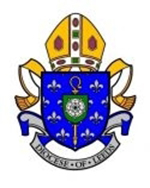Our Curriculum
Curriculum Intent Statement
At St. Joseph’s we have designed our curriculum with pupils’ learning at the centre with the aim of ensuring that all pupils make progress and prepares our children for the ever-changing world that they will grow into. It provides enriching experiences to develop and foster a love of learning for all our children. We want our pupils to be active learners, become creative and critical thinkers.
We are a small school and our curriculum is broad and balanced and designed by all our team with our pupils in mind, to meet their needs and build on their interests. It meets the statutory requirements of the National Curriculum. (2014) If you want to know more about the National Curriculum we follow you can use the following link. https://www.gov.uk/national-curriculum
As a Catholic School, the teachings of the gospels are at the centre of everything we do. Our Mission Statement ‘With Jesus at the centre of all we do and say’ underpins our curriculum and all we do at St. Joseph’s.
Physical and mental well being are prioritised within our curriculum allowing pupils to exhibit spiritual, social and cultural understanding, and recognising the valuable contribution and positive impact of sport and the arts.
Aims of our Curriculum
For all pupils to:
- Become fluent and confident readers and to develop an appreciation and love of Reading whilst gaining knowledge across the curriculum.
- Use excellent basic skills across the curriculum including Reading, writing and mathematics.
- Develop a sense of morality, respect and community.
- Be excited by the curriculum and want to learn.
- Retain key knowledge in all curriculum areas.
- Become independent, resilient and divergent learners so they are ready for secondary school (and beyond).
- Be challenged and make progress across all areas of the curriculum (including disadvantaged pupils and those with a special need and/or disability).
- Have a broad and lasting knowledge of subject specific vocabulary.
- Have a wide range of life experiences that enhance their learning (including trips and extra-curricular activities)
Curriculum Implementation
The curriculum design ensures that the needs of individual and small groups of pupils can be met within the environment of high quality teaching. The delivery of the curriculum takes place within school, outside in our extensive school grounds or at external locations. Opportunities are sought within the curriculum to encourage strong community links.
The curriculum is designed in a blocked approach to ensure coverage and progression. The objectives are planned in a weekly format in response to the pupils needs incorporating a variety of differing approaches to teaching and learning.
Our Feedback and Marking policy is implemented consistently, opportunities are provided for pupils to reflect on their learning and think deeply and carefully about their feedback.
Our curriculum delivery in sports is enhanced by specialist coaches that deliver high quality provision for all pupils. In addition, we have identified that some of our pupils need additional support with developing resilience and skills to reduce anxiety.
We are committed to the broadest educational offering, and that means looking beyond the National Curriculum and enables the development of the whole pupil, whatever their ability, such as through our Forest School’s programme. A successful enrichment programme is offered through school trips, visiting specialists and themed days and weeks.
Reception Curriculum (to be read in conjunction with the EYFS Policy)
In Reception, we follow the Early Years Statutory Framework for the Early Years Foundation Stage, published in March 2014 by the DfES. This Framework specifies the requirement for learning and development in the Early Years and provides specific areas of learning we must cover in our curriculum.
These areas are:
- Personal, Social and Emotional Development;
- Physical Development;
- Communication and Language development;
- Literacy;
- Mathematics;
- Understanding the World;
- Expressive Arts and Design.
























